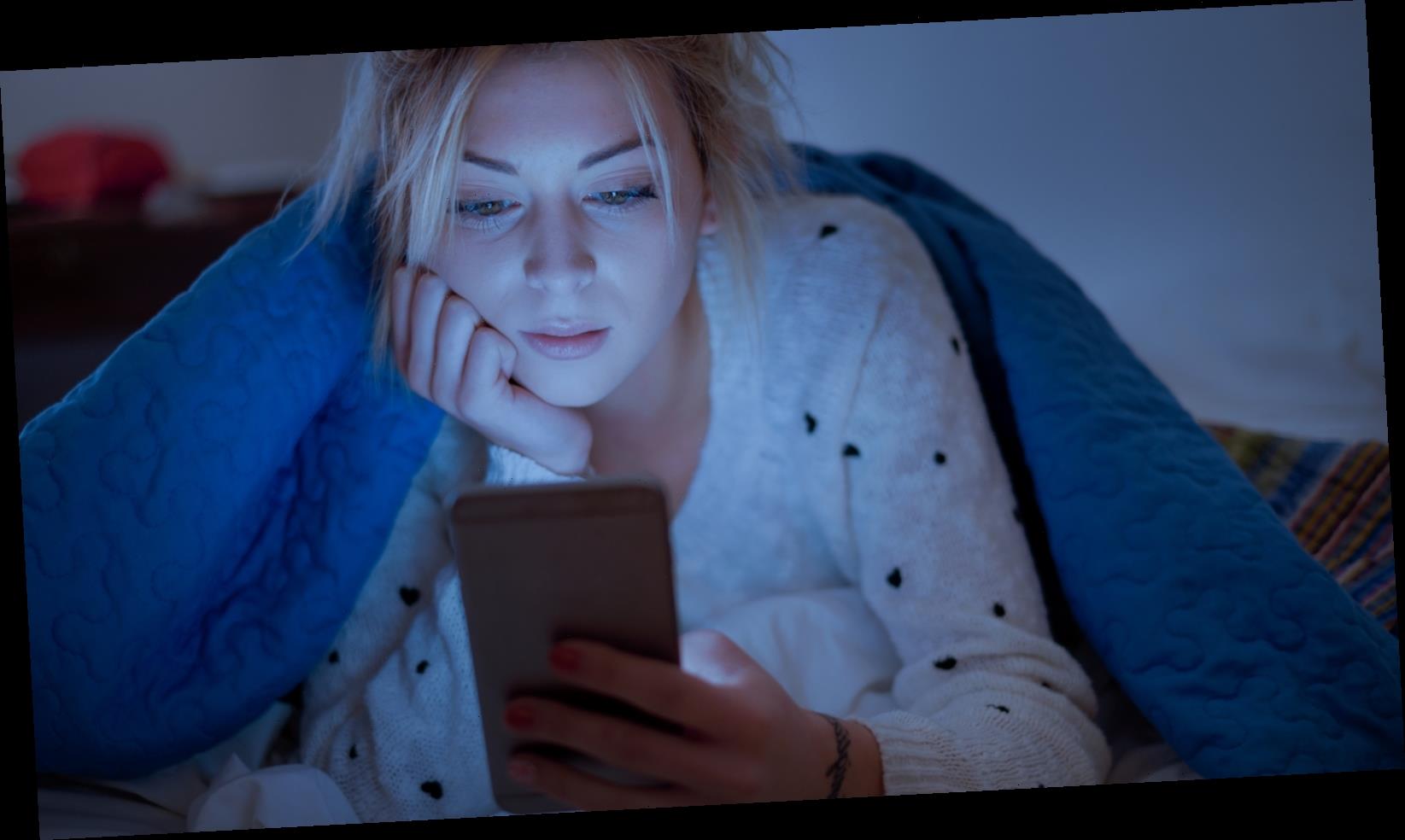
Most people have a friend who preaches the revolutionary change of not looking at any screens before bed. However, scrolling through social media or watching back-to-back episodes of The Bachelor before you go to sleep can be a seriously difficult habit to break. So, this is when you should look at your phone for the last time before going to bed. You don’t need to hide screens from yourself in the evening altogether. But knowing when to turn off your phone and Netflix in order to get some shut-eye could provide you with the routine to get higher quality sleep.
According to the 2011 Sleep in America Poll from the National Sleep Foundation, four in ten Americans bring their phones to bed when they’re trying to sleep and this habit was most common among 13 to 29-year-olds. Six in ten people said they used their laptop or computer within an hour of them going to bed. If you find yourself bringing screens to bed with you at night then you’re not alone.
According to Cleveland Clinic sleep disorders specialist, Dr. Harneet Walia, “Checking your phone stimulates the brain so we are more active and awake. Even just a quick check can engage your brain and prolong sleep.”
So if you’re ready to break the habit of bringing your phone to bed, here’s the time you should switch screens off and wind down.
Look at your phone for the last time 30 minutes before going to bed

Everybody’s brain reacts slightly differently to light and screens. Rather than turning to your phone or laptop, the National Sleep Foundation recommends that you develop a one-hour wind-down routine before bed that doesn’t involve screens. So instead of flicking through TikTok until your eyelids close, you could have a bath, put on a face mask, and practice some self-care. The Sleep Foundation outlines that you should stop looking at electronic devices like phones, laptops, and game consoles at least 30 minutes before you go to bed. If you’re aiming to be in bed by 11 p.m. then switch off your devices at 10:30 p.m.
Research published in the scientific journal PNAS found that people who chose to use e-readers rather than print books took ten minutes longer to fall asleep. Researchers recommended cutting the blue light before bed and picking up a paperback so you can get to sleep quicker and wake up feeling more refreshed.
Your phone inhibits how well you sleep, as well as when you nod off
SCL Health explains that your body follows a 24-hour sleep-wake cycle, ak.a. your circadian rhythm. When the sun rises your body releases cortisol, which makes you alert. At night, melatonin is produced to make you feel sleepy.
Additional research from PNAS found that staring at the blue light emitted by screens can delay the production of melatonin and make it harder to fall asleep. The same studies have also highlighted that once you do fall asleep, blue light can really affect the amount of time you spend in REM sleep, which is essential for cognitive functioning. If an email notification wakes you up or you’re sleeping next to your phone in anticipation of a message, you’ll sleep lighter.
By staying awake longer at night and having poor quality sleep when you do nod off, you’re much more likely to be lethargic the next morning. As you’re making changes to your nighttime routine, Healthline also recommends that you don’t drink caffeine six hours before going to bed, set your bedroom temperature so you’re comfortable but not too warm, and avoid eating late into the evening. Healthline also said that the setup of your bedroom and going to bed at the same time every night can improve your sleep quality.
Source: Read Full Article

